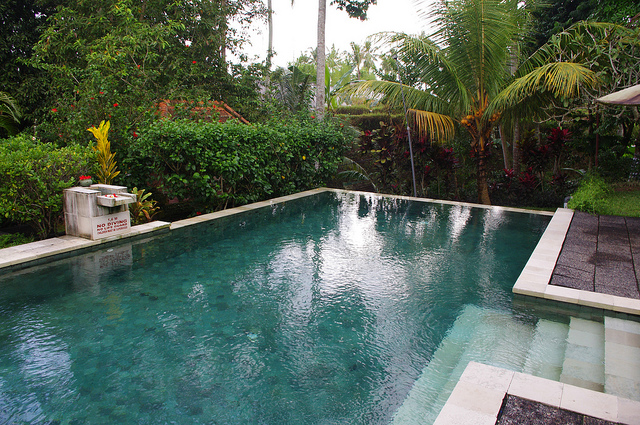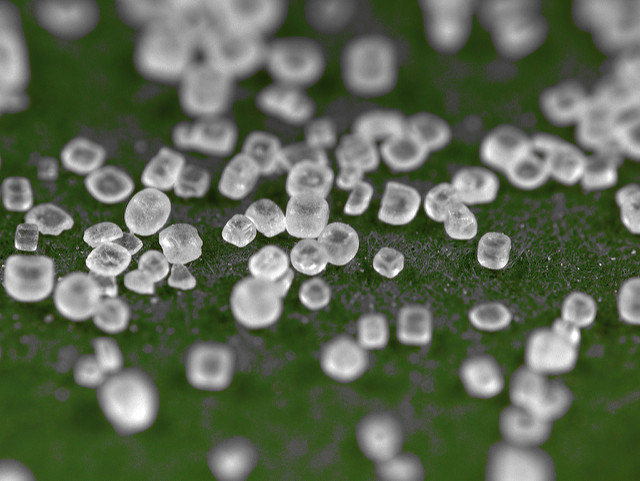Understanding Salt Water Chlorination Systems
Ever since you can remember, you’ve been adding shock to your swimming pool. That’s how chemical maintenance has been for awhile. You test the water and add the needed chemicals. But nowadays, folks are transitioning into a new method. A method that’s cleaner, safer, and more affordable.
Salt Water Chlorination. It’s a form of pool automation.
And this post should help you understand how salt water chlorination systems work.
But first, let’s start with the basics.
What is Salt Water Chlorination?
Salt Water Chlorination uses dissolved salt to produce chlorine. With the help of a chlorine generator, the system utilizes electrolysis. A process that produces hypochlorous acid and sodium hypochlorite, which function as chlorine.
How do Salt Water Chlorination Systems work?



Instead of having to manually add chlorine, salt water chlorination systems automate the process. Running a regenerative process that produces chlorine on-site. Chlorine that acts as a sanitizer, keeping the pool clean. Which means no handling heavy chemicals, storing buckets of tablets, or constant pool shocking. Because Salt Water Chlorination systems do all of that for you. Only requiring salt replenishments and good upkeep. Making your pool care responsibilities, much lighter.
[Want some powerful pool care tips? Check this out]
-Salt Water Chlorine Generator
This is the heart of salt water chlorination systems. Commonly referred to as a salt cell, salt generator, or salt chlorinator. It’s where all of the pool water passes through. And the center of chlorine production. Chlorine produced in a gas form, which is circulated into the pool water. And from there, the cycle restarts.
Facts about Salt Water Chlorination Systems
- Salt water pools aren’t as salty as you think. They contain about 1/10th the salinity of ocean water.
- Salt water chlorination systems use sodium chloride, better known as, table salt
- Mythbuster: Salt water pools are not chlorine free. They simply use a different process to produce it.
- Salt Water Chlorinators can be expensive to replace, but operate efficiently like a lightbulb.
Pros and Cons of Salt Water Chlorination Systems



Pros
+Comfortable
Ever gone for a swim and dealt with the effects of too much chlorine? The dry, itchy skin and irritated eyes ( and sometimes hair damage). The harsher side effects of traditional chlorine.
But salt water chlorination systems are different. The chlorine produced by the salt water chlorine generator is much softer on the skin. After a swim in a salt water pool, you’ll feel comfortable, clean, and refreshed. That is, as long as your taking care of your filter system.
+Less chemicals/Safe
As we mentioned, salt water chlorination systems essentially eliminate traditional pool chemical maintenance. You won’t need to buy, store, or use extra (toxic) chemicals. Which creates a safer and healthier pool. Plus, you can say goodbye to that classic “chlorine odor”. But speaking of health…
+Healthy
You already know that salt-based chlorine is gentler on the body, but it’s also better for your health. Offering an excellent sanitizer alternative for people who suffer from allergies and asthma.
+Low maintenance
For the most part, maintaining a salt water pool system is fairly easy-going. As there isn’t a constant need to balance chemicals. Most of the work involves monitoring the system and keeping it serviced. But’s it’s still equally as important as servicing your pool heat pump. Because what’s warm refreshing pool with dirty water, or vice versa?
+Low Cost (Long-Term)
Salt water chlorination systems are far more cost-effective than traditional chlorination. They really only require salt refills here and there. Which is much cheaper than all the other chemicals you’d normally need.
Cons
+High initial cost
Quality salt water chlorination systems usually have a high initial cost. From the cost of the unit to the installation. A salt water chlorination system is a significant investment for any pool owner. But a worthwhile one nonetheless. Because as we mentioned before, the low-cost operation offsets the initial expense.
+Delicate
Although salt water chlorination systems are fairly low maintenance, they can be delicate. With traditional chemical maintenance, adding a certain amount of a chemical will usually solve any sanitation problem. But salt water chlorination systems involve a more complex process. And if they’ve overworked or undermaintained, things can go wrong. And the fancier the system, the more it will cost to repair.
Sure, you can make the repairs yourself. But salt water chlorination systems can be tricky. Which is why in most cases, repair is best left to a professional pool repair service.
+Potentially corrosive to hardware
The downside to having a salt water pool is the salt itself. Too much of it can wreak havoc on your pool’s hardware. Eating away at everything from ladders and fixtures, to pool heaters and masonry work. But this level of corrosion damage is really only a factor with poorly maintained or improperly installed systems. So as long as you take good care of it, this won’t be a problem.
In summary
We hope this post helped you get a better understanding of salt water chlorination systems. They’re simply just another chlorination system that uses salt instead of chemicals. They save you money and are much gentler on your body. And they’re self-sufficient, so you get to enjoy more time in the pool. But with all great commodities, there are pros and cons. Although delicate and costly to install, a well-maintained salt water chlorination system provides benefits that qualify it as an excellent addition to any pool.


